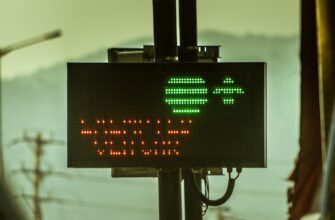In the Philippines’ booming crypto landscape, many ETH holders seek ways to sell Ethereum without KYC (Know Your Customer) verification. Whether for privacy, accessibility, or avoiding lengthy verifications, this guide explores legal methods to convert ETH to cash locally while minimizing risks.
### Why Sell ETH Without KYC in the Philippines?
KYC requires sharing personal documents like IDs and proof of address with exchanges. Filipinos often avoid it for:
– **Privacy protection** from data breaches
– **Faster transactions** without verification delays
– **Accessibility** for unbanked users or those lacking documents
– **Decentralization principles** aligning with crypto’s core ethos
### How to Sell ETH Without KYC: 4 Legal Methods
#### 1. Peer-to-Peer (P2P) Marketplaces
Platforms like LocalCoinSwap or Paxful connect you directly with buyers:
– **Process**: Create offer → Buyer pays via GCash/Maya/bank → Release ETH from escrow
– **Pros**: Flexible payment options, competitive rates
– **Cons**: Requires vetting buyers to avoid scams
#### 2. Decentralized Exchanges (DEXs)
Swap ETH for stablecoins on DEXs like Uniswap or PancakeSwap:
– **Process**: Connect wallet → Swap ETH for USDT/USDC → Cash out via P2P
– **Pros**: Fully non-custodial, no registration
– **Cons**: Requires crypto-to-fiat conversion step
#### 3. Bitcoin ATMs (Supporting ETH)
Select machines like those by Coins.ph allow ETH sales:
– **Locations**: Major malls in Manila, Cebu, Davao
– **Limits**: ₱50,000-₱200,000 daily without KYC
– **Fees**: 5-10% per transaction
#### 4. OTC (Over-the-Counter) Trading Desks
For large amounts (₱500k+):
– **How it works**: Direct deals with institutional buyers
– **Finding brokers**: Crypto communities like Binance PH Telegram groups
– **Caution**: Use escrow services and meet in secure public spaces
### Step-by-Step: Selling via P2P Safely
Follow this process on LocalCoinSwap:
1. **Sign up** (email only, no KYC)
2. **Post sell ad** specifying ETH amount and payment method (e.g., GCash)
3. **Wait for buyer** – Check their trade history and ratings
4. **Initiate trade** – ETH locks in escrow
5. **Confirm payment** – Wait for GCash/Peso notification
6. **Release ETH** – Only after funds are received
7. **Leave feedback** to build reputation
### Risks & Safety Measures
#### Key Risks:
– **Scams**: Fake buyers reversing payments
– **Price volatility**: ETH value fluctuations during trades
– **Regulatory gray areas**: BIR tax reporting still applies
#### Safety Checklist:
✅ Use platform escrow for all transactions
✅ Verify buyer/seller ratings (min. 10+ positive reviews)
✅ For cash meets: Choose daylight in crowded malls
✅ Never share private keys or OTPs
✅ Track transactions for tax compliance (BIR Form 1709)
### FAQ: Selling ETH Without KYC in PH
**Q: Is non-KYC ETH selling legal in the Philippines?**
A: Yes, but you must report earnings to BIR. KYC avoidance isn’t illegal, but tax evasion is.
**Q: What’s the max ETH I can sell without KYC?**
A: P2P: No fixed limit. ATMs: ₱200k/day. Large OTC deals may trigger AML checks.
**Q: Which payment methods are safest?**
A: GCash, Maya, and bank transfers with transaction IDs. Avoid anonymous methods like gift cards.
**Q: How to avoid P2P scams?**
A: Always use escrow, record payment confirmations, and never release ETH before funds arrive.
**Q: Are DEXs truly KYC-free?**
A: Yes, when using non-custodial wallets (e.g., MetaMask). Centralized stablecoins may require KYC later.
**Q: Do I pay taxes on non-KYC ETH sales?**
A: Yes. The Philippines taxes crypto as capital gains (15%) or income (up to 35%). Keep transaction records.
### Final Tips
Prioritize platforms with Filipino Peso pairs to avoid conversion fees. For recurring sales, build trusted buyer networks in local crypto communities. While non-KYC methods offer convenience, always balance privacy with regulatory compliance. Monitor Bangko Sentral ng Pilipinas (BSP) guidelines, as regulations may evolve.








